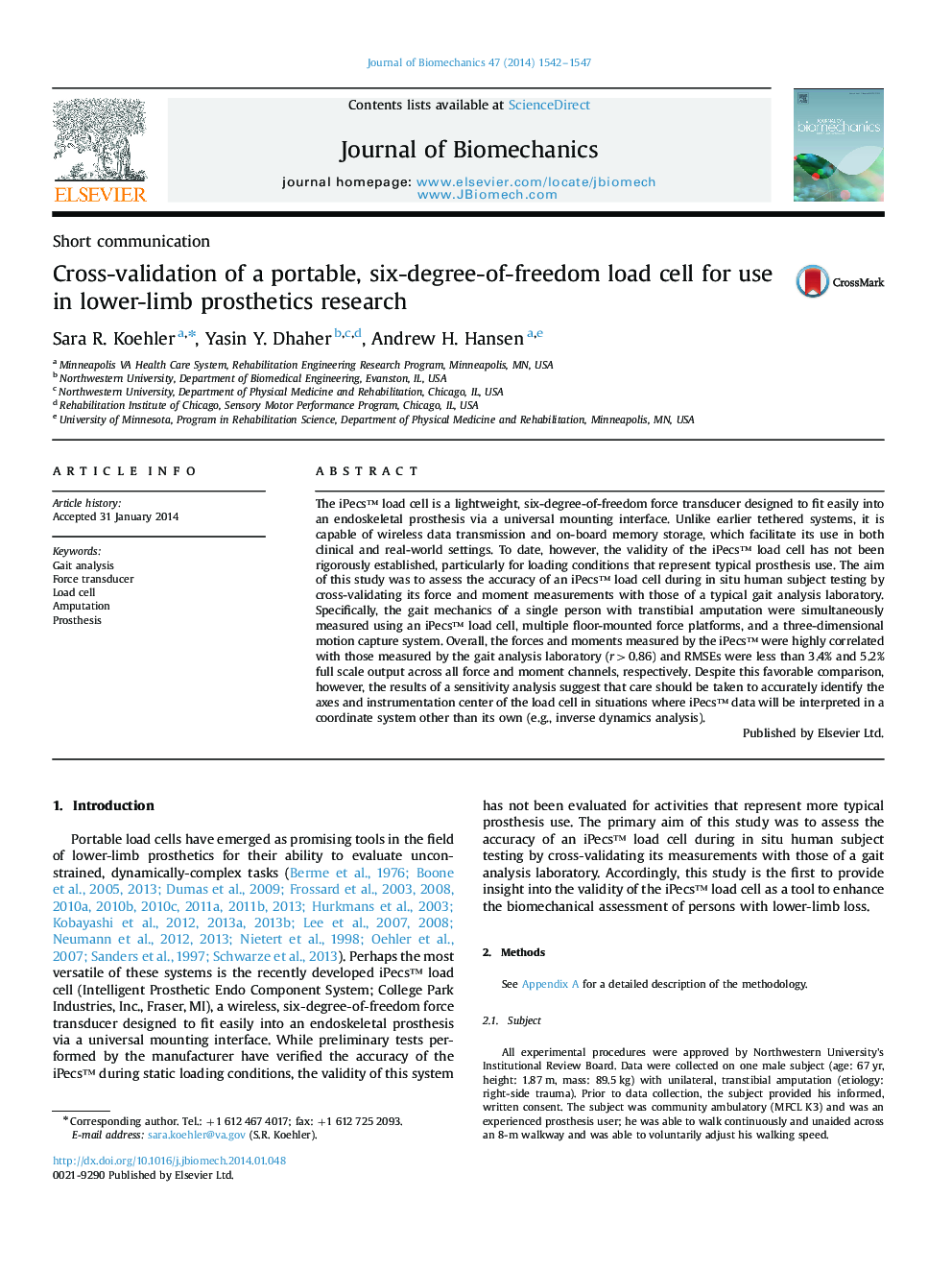| Article ID | Journal | Published Year | Pages | File Type |
|---|---|---|---|---|
| 10432044 | Journal of Biomechanics | 2014 | 6 Pages |
Abstract
The iPecs⢠load cell is a lightweight, six-degree-of-freedom force transducer designed to fit easily into an endoskeletal prosthesis via a universal mounting interface. Unlike earlier tethered systems, it is capable of wireless data transmission and on-board memory storage, which facilitate its use in both clinical and real-world settings. To date, however, the validity of the iPecs⢠load cell has not been rigorously established, particularly for loading conditions that represent typical prosthesis use. The aim of this study was to assess the accuracy of an iPecs⢠load cell during in situ human subject testing by cross-validating its force and moment measurements with those of a typical gait analysis laboratory. Specifically, the gait mechanics of a single person with transtibial amputation were simultaneously measured using an iPecs⢠load cell, multiple floor-mounted force platforms, and a three-dimensional motion capture system. Overall, the forces and moments measured by the iPecs⢠were highly correlated with those measured by the gait analysis laboratory (r>0.86) and RMSEs were less than 3.4% and 5.2% full scale output across all force and moment channels, respectively. Despite this favorable comparison, however, the results of a sensitivity analysis suggest that care should be taken to accurately identify the axes and instrumentation center of the load cell in situations where iPecs⢠data will be interpreted in a coordinate system other than its own (e.g., inverse dynamics analysis).
Related Topics
Physical Sciences and Engineering
Engineering
Biomedical Engineering
Authors
Sara R. Koehler, Yasin Y. Dhaher, Andrew H. Hansen,
